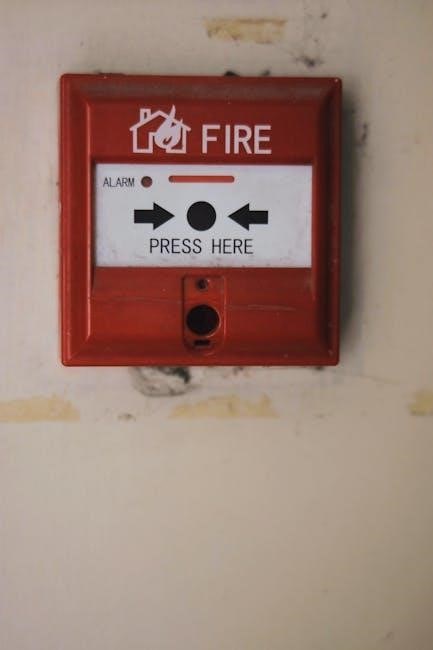Welcome to the Connecticut Notary Public Manual, a comprehensive guide designed to assist notaries in understanding their roles, duties, and legal responsibilities. Published by the Secretary of the State, this manual serves as an essential resource for both new and experienced notaries.
Updated with the latest laws, including Public Act 23-28, this manual provides detailed instructions on notary procedures, ethical standards, and best practices to ensure compliance and professionalism.
1.1 The Role of a Notary Public as a Public Official
The notary public serves as a public official appointed by the Secretary of the State, entrusted with upholding the integrity of official transactions. Their primary duties include administering oaths, taking acknowledgments, and performing other tasks as permitted by law.
As a public official, the notary must act impartially, ensuring the authenticity and legality of documents. This role demands a commitment to ethical standards and the protection of public trust, making the notary a vital component of official transactions.
1.2 The Importance of the Notary Public Manual
The Connecticut Notary Public Manual is a comprehensive resource essential for understanding the roles and responsibilities of notaries. It provides detailed guidance on state laws, ethical standards, and proper procedures, ensuring compliance and professionalism. The manual serves as a critical tool for both new and experienced notaries, offering step-by-step instructions and clarifying legal requirements. By following its guidelines, notaries can maintain integrity and public trust in their official duties. Regular updates, such as those related to Public Act 23-28, ensure the manual remains relevant and authoritative.

The History and Evolution of Notary Public Services
The notary public role traces its roots to ancient Rome, evolving over centuries to become a trusted public official. In Connecticut, notary services have adapted to legal and societal changes, ensuring integrity in official transactions and maintaining public trust through ethical practices and updated regulations.
2.1 Historical Background of Notary Public Services
The role of the notary public traces its origins to ancient Rome, where notarius acted as scribes, recording official transactions. During the Middle Ages, the Catholic Church formalized notary practices, emphasizing document authentication. In colonial America, notaries served as trusted officials, verifying legal documents. Connecticut adopted this tradition, with notaries appointed by the Secretary of the State to ensure integrity in official transactions. This historical foundation underscores the notary’s enduring role as a guardian of authenticity and trust in legal processes, evolving to meet modern societal needs while maintaining core ethical standards.
2.2 The Development of the Connecticut Notary Public Manual
The Connecticut Notary Public Manual was developed by the Office of the Secretary of the State to guide notaries in performing their duties effectively. It outlines legal requirements, ethical standards, and best practices for notary services. The manual has evolved over time, incorporating updates such as Public Act 23-28, to reflect changing laws and professional expectations. Designed for both new and experienced notaries, it serves as a comprehensive resource to ensure compliance and professionalism in executing notarial acts across Connecticut.

Application and Appointment Process
Becoming a Connecticut notary involves meeting eligibility criteria, submitting an application, and paying required fees. Applicants must complete the process and take an oath of office to be appointed.
3.1 Eligibility Requirements for Becoming a Notary Public
To qualify as a Connecticut notary public, applicants must be at least 18 years old, reside in Connecticut, and be a U.S. citizen. They must pass a background check, hold no criminal convictions, and not have had a prior notary commission revoked. Applicants must also be legally authorized to work in the U.S. and complete the required application process. While legal training is not mandated, understanding state laws is crucial for ethical practice. Meeting these criteria ensures eligibility for appointment as a notary public in Connecticut.
3.2 Steps to Apply for a Notary Public License
To apply for a Connecticut notary public license, submit a completed application through the online portal or by mail. Pay the required fee and pass a background check. Once approved, the Secretary of the State will issue a commission certificate. Active state employees may use the online process for their official duties. After receiving the commission, purchase a notary stamp and journal. This process ensures compliance with state regulations and prepares you to perform notarial acts effectively.
3.3 Certificate of Appointment and Oath of Office
Upon approval, the Secretary of the State issues a Certificate of Appointment, valid for four years. Notaries must sign and file an Oath of Office with the town clerk where they reside or work. This oath confirms their commitment to ethical conduct and adherence to state laws. Active state employees may use their commission for official duties. The certificate and oath are essential steps to finalize the notary appointment process, ensuring legal compliance and public trust in the notary’s role.

Duties and Responsibilities of a Notary Public
A Connecticut notary public must administer oaths, take acknowledgments, and perform other lawful duties. Notaries serve as impartial witnesses, ensuring document authenticity and compliance with state laws.
4.1 Administering Oaths and Taking Acknowledgments
Administering oaths and taking acknowledgments are primary duties of a Connecticut notary public. Notaries must ensure individuals understand the document’s content and verify their identity. This involves witnessing signatures, confirming voluntary consent, and maintaining a notarial journal for record-keeping. Strict adherence to state laws ensures the integrity of these acts, upholding the notary’s role as an impartial public official. Proper execution of these duties is essential for legal validity and public trust.
4.2 Performing Other Permitted Duties
Beyond oaths and acknowledgments, notaries may perform additional duties as permitted by Connecticut law. These include witnessing signatures, certifying copies of documents, and executing jurats. Notaries must ensure all actions comply with state regulations and maintain a notarial journal for accountability. While duties vary, the core principle remains to act impartially and ethically, avoiding any conduct that could be perceived as legal advice or beyond the scope of notarial authority. Proper execution of these duties upholds the integrity of official transactions.

Legal and Ethical Considerations
Notaries must adhere to Connecticut state laws and ethical standards, ensuring impartiality and avoiding conflicts of interest. Misconduct can result in legal penalties and loss of commission.
5.1 Understanding Connecticut State Laws Governing Notaries
Connecticut state laws outline specific duties and restrictions for notaries public, ensuring legal compliance and ethical practices. Notaries must adhere to these laws, which cover fees, prohibited acts, and required procedures. Public Act 23-28 introduces updated regulations, which notaries must familiarize themselves with. The manual provides detailed guidance on these laws, emphasizing the importance of understanding and following them to avoid penalties and maintain public trust. Proper adherence ensures the integrity of notarial acts and upholds the office’s public service role.
5.2 Ethical Standards and Professional Conduct
Notaries public in Connecticut must uphold high ethical standards and maintain professional conduct at all times. This includes acting impartially, avoiding conflicts of interest, and ensuring confidentiality. Notaries must refrain from providing legal advice and strictly adhere to state laws and regulations. Ethical violations can result in penalties, including loss of commission. The manual emphasizes the importance of integrity, transparency, and fairness in all notarial acts. Adhering to these standards is crucial to maintaining public trust and fulfilling the duties of a notary responsibly and effectively.
Fees and Charges for Notary Services
Connecticut notaries may charge up to $5 for each notarial act and 35 cents per mile for travel. Additional fees for services like document preparation are prohibited. Always verify maximum allowable fees to ensure compliance with state regulations and maintain transparency with clients.
6.1 Maximum Allowable Fees for Notarial Acts
Connecticut notaries may charge a maximum of $5 for each notarial act, as mandated by state law. This fee applies to services such as administering oaths, taking acknowledgments, and witnessing signatures. Notaries must adhere to this cap to avoid violating regulations. It is important to note that additional fees for travel or document preparation are separate and must be agreed upon in advance. Transparency in billing is crucial to maintaining trust and ensuring compliance with legal standards.
6.2 Travel Fees and Additional Charges
Connecticut notaries may charge travel fees for services provided outside their usual business location. The maximum travel fee is $0.35 per mile, plus a reasonable waiting time fee if applicable. These charges must be agreed upon in advance with the client. Notaries should clearly disclose all additional fees to ensure transparency and avoid disputes. Ethical practices dictate that fees remain reasonable and in line with state regulations, maintaining public trust in notary services.

Connecticut-Specific Laws and Regulations
Connecticut notaries must adhere to state-specific laws, including the use of approved seals and stamps, as outlined in Public Act 23-28. They must follow ethical standards and legal requirements to maintain public trust and ensure compliance with all regulations governing notary services in Connecticut.
7.1 State-Specific Requirements for Notary Seals and Stamps
In Connecticut, notaries are required to use a rubber stamp or ink stamp that meets specific design standards. The stamp must include the notary’s name, “Notary Public,” the state of Connecticut, and the commission expiration date. While an embossing seal is not mandatory, it is permitted for use alongside the stamp. The design must be clear and legible, with font sizes adhering to state regulations. Proper use of these tools ensures compliance with Connecticut’s notary laws and maintains the integrity of notarized documents. Failure to meet these requirements may result in legal consequences.
7.2 Compliance with Public Act 23-28
Public Act 23-28 introduced significant updates to Connecticut’s notary laws, requiring notaries to adhere to new regulations. Key changes include updated procedures for electronic notarizations and enhanced security measures for notarial acts. Notaries must ensure all transactions comply with these standards to maintain legal validity. Active state employees are now permitted to use an online application process for their notary licenses, streamlining the renewal and appointment procedures. Compliance with this act ensures that notaries remain in good standing and uphold the integrity of their official duties.

The Structure and Content of the Connecticut Notary Public Manual
This manual is structured to guide notaries through legal requirements, application processes, and ethical standards. It includes detailed sections on duties, state-specific laws, and best practices.

8.1 Overview of the Manual’s Key Sections
The Connecticut Notary Public Manual is organized into clear sections, each addressing critical aspects of notary services. It begins with an introduction to the role of notaries as public officials. The manual then delves into historical context, application processes, and detailed duties such as administering oaths and acknowledgments. Legal and ethical considerations are thoroughly covered, along with fee structures and state-specific requirements. The guide also emphasizes best practices, continuing education, and concludes with the importance of notaries in official transactions. This structure ensures comprehensive understanding and compliance with Connecticut laws.
8.2 Recent Updates and Revisions
The Connecticut Notary Public Manual has been updated to reflect the implementation of Public Act 23-28, which introduces new requirements for notaries. Recent revisions include guidelines on electronic notarization and remote services, aligning with modern practices. The manual now also clarifies maximum allowable fees and travel charges, ensuring transparency. Additionally, updates to ethical standards and compliance measures highlight the importance of professionalism. These revisions ensure the manual remains a reliable resource for notaries to perform their duties effectively and lawfully.

Best Practices for Notary Public Services
Always maintain professionalism, integrity, and attention to detail. Avoid common mistakes by carefully reviewing documents and ensuring proper identification of signers. Uphold ethical standards in every interaction.
9.1 Maintaining Professionalism and Integrity
Maintaining professionalism and integrity is crucial for notaries public in Connecticut. As a public official, it is essential to act impartially, avoiding any conflicts of interest. Ensure all notarial acts are performed lawfully and ethically. Always verify the identity of signers and witness their signatures personally. Use official tools like seals and stamps correctly, and keep records organized. Stay updated on laws and best practices to uphold the trust placed in your role. Professionalism ensures the integrity of official transactions and protects all parties involved.
9.2 Avoiding Common Mistakes and Pitfalls
To maintain professionalism, notaries must avoid common errors. Ensure proper identification of signers and avoid incomplete notarizations. Use official tools like seals and stamps correctly, as required by Connecticut law. Never pre-date or post-date documents, and always follow state-specific guidelines. Keep accurate records of all notarial acts to prevent legal issues. Stay informed about updates in laws and best practices to avoid pitfalls. Proper adherence to these standards ensures compliance and upholds the integrity of official transactions.

Continuing Education and Resources
Common errors include improper identification of signers, incomplete notarizations, and misuse of official tools. Always verify identities thoroughly and ensure documents are fully executed before notarizing.
Avoid pre-dating or post-dating documents, as this can lead to legal complications. Keep detailed records of all notarial acts to maintain accountability and comply with state regulations.
Stay informed about legal updates and best practices to prevent pitfalls, ensuring professionalism and integrity in every transaction.
10.1 Importance of Ongoing Education for Notaries
Ongoing education is crucial for notaries to stay updated on laws, procedures, and best practices. The Connecticut Notary Public Manual emphasizes the need for continuous learning to ensure compliance with legal requirements and maintain professional competence. Regular training helps notaries avoid errors, understand new regulations like Public Act 23-28, and adapt to evolving standards. By staying informed, notaries uphold the integrity of their role and provide reliable services to the public.
10.2 Recommended Resources and References
For further guidance, the Connecticut Secretary of the State recommends several resources. The official Connecticut Notary Public Manual is a primary reference, offering detailed insights into laws and procedures. Additional resources include online training programs and workshops approved by the Secretary of the State. The Connecticut General Assembly’s website provides access to relevant statutes, while the National Notary Association offers supplementary materials. These resources help notaries stay informed and adhere to legal and ethical standards.
The Connecticut Notary Public Manual is an indispensable guide, ensuring notaries uphold their duties with integrity. Mastery of this manual is crucial for effective, lawful, and ethical service.
11.1 The Vital Role of Notaries in Official Transactions
Notaries play a critical role in verifying document authenticity, ensuring legal compliance, and protecting against fraud. As public officials, they act as impartial witnesses, fostering trust in transactions. Their duties, such as administering oaths and acknowledgments, are essential for the validity of deeds, contracts, and other legal documents. The notary’s seal and signature confirm the integrity of processes, safeguarding individuals and institutions. Their work upholds the integrity of official transactions, making them indispensable in maintaining public trust and legal certainty in Connecticut;
11.2 Final Thoughts on Mastering the Connecticut Notary Public Manual
Mastery of the Connecticut Notary Public Manual is essential for fulfilling the duties of a notary with accuracy and integrity. By thoroughly understanding the manual, notaries can navigate legal requirements, ethical standards, and best practices effortlessly. Continuous learning and adaptation to updates ensure compliance and professionalism. This guide serves as a roadmap for notaries to uphold public trust and execute their responsibilities confidently, contributing to the smooth operation of official transactions in Connecticut.






























































